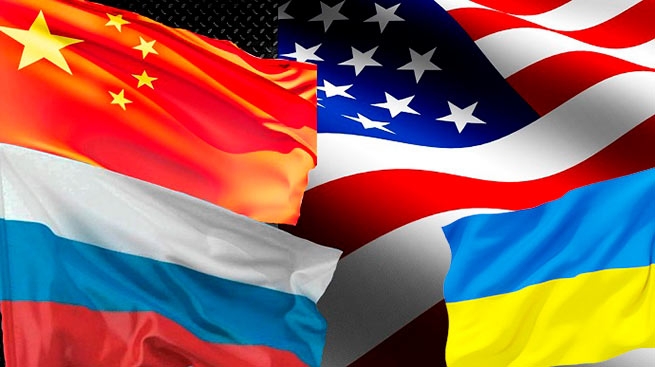“Why Ukraine can accept China’s peace plan”: Asia Times writes that the United States does not believe in Zelensky’s prospects and is considering options for a way out of the conflict.
According to the newspaper, this is due to the fact that Kiev lost almost all the military trained by NATO from 2014 to 2022, only recruits go into battle, and Moscow will definitely win in the so-called war of attrition.
“A recent closed conference of leading American foreign policy experts showed that Ukraine risks losing a war of attrition, despite all the efforts of the West. For the most part, sentiment tended to escalate in the form of providing Ukraine with more weapons. One analyst suggested the formation of a “foreign legion”. The majority were in favor of risking everything for the sake of an absolute victory over Russia.
One speaker argued that Zelenskiy, lacking trained men and ammunition, might consider a Chinese peace plan. Russia will keep the Sea of Azov and most of the Donbass – such a settlement could be forced on Ukraine, the author of the publication claims. “The entire army that NATO trained from 2014 to 2022 is dead and recruits are being thrown into battle after three weeks of training. There is only one strategic conclusion: having more military power, Russia will win the war of attrition. The prospects for a breakthrough to break the stalemate along the line of contact are slim, one expert said. Russia had enough time to prepare the defense,” the article says.
According to one expert, Ukraine will need 650 modern main battle tanks and 1,000 armored personnel carriers. Another former US military leader argued that the US should send 1,000 Abrams M1 tanks to Ukraine.
War to the last… Washington considers the Chinese “Peace Plan” for Ukraine unacceptable. The US fears that a war-weary world could back China’s initiatives. Bloomberg. A Biden administration official who spoke on condition of anonymity said the US fears being cornered by a Chinese “peace plan.” Regardless of Washington’s claims, abandoning the plan could allow China to tell other nations weary of war and its economic damage that Washington is not interested in peace.
US officials have publicly expressed deep skepticism about China’s idea, saying its call for a ceasefire would reward Moscow’s invasion by securing Russia’s territorial gains. Privately, however, these meetings and the “peace plan” have caused concern in the Biden administration, which in turn has led to questions about a broader US approach to Russia and China.
If Washington ignores the issue, China is likely to step up reports that the United States opposes a ceasefire and an end to the war, said Bonnie Lin of the Center for Strategic and International Studies. “There are many ways in which China will try to portray the results of the Sino-Russian meeting in a way that portrays the US in a negative light,” she added.
The debate over the Chinese peace plan highlights just one of the many uncomfortable realities that Xi’s three-day visit to Moscow has brought. Both countries pledged to further deepen the partnership. The Biden administration tried to keep China out of the Russian invasion of Ukraine, but the opposite seems to have happened. Even as Xi and Putin grow closer, China is finding a receptive audience for its broader diplomatic push around the world.
At a Senate hearing on Wednesday, March 22, Democrat Jeff Merkley asked Secretary of State Anthony Blinken to respond to what he called “a three-day fraternal festival where Putin and Xi salute authoritarian rule.” Blinken acknowledged that this was a continuation of the two countries’ agreements agreed before the war on a “partnership without limits”.
“This is not surprising – both countries have a very different worldview from ours. They can find common ground in opposing the worldview that we and many other countries of the world are trying to defend and develop,” Blinken said. He did not name all the countries that refused to take sides, despite US calls.
China has waived sanctions over its companies’ partnership with Russia, bought oil from the Iranian regime against Western demands, and helped orchestrate a diplomatic détente between Saudi Arabia and Iran. The world’s largest economies, such as India and Brazil, are refusing to choose between China and the West, saying they don’t want a new Cold War. And a week ago, Honduras began the process of abandoning diplomatic ties with Taiwan in favor of economic ties with China.







More Stories
The Ukrainian Main Intelligence Directorate announced the downing of a Tu-22MZ bomber (video)
American ATACMS missiles destroyed parts of S-400 and S-300 batteries in Crimea
Johnson's bill unveiled: send Ukraine $61 billion and ATACMS